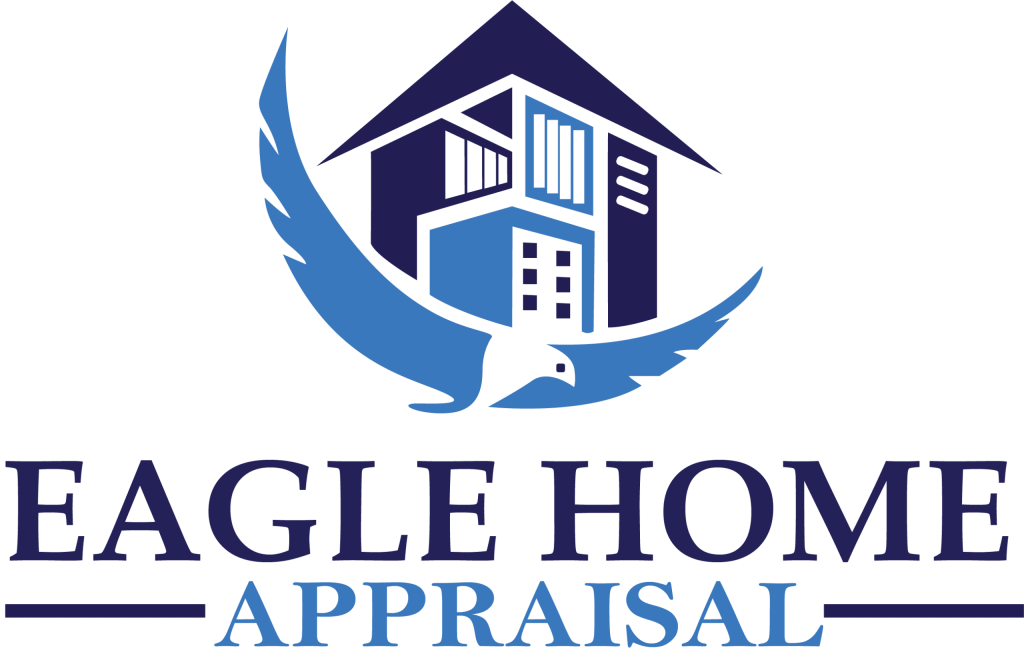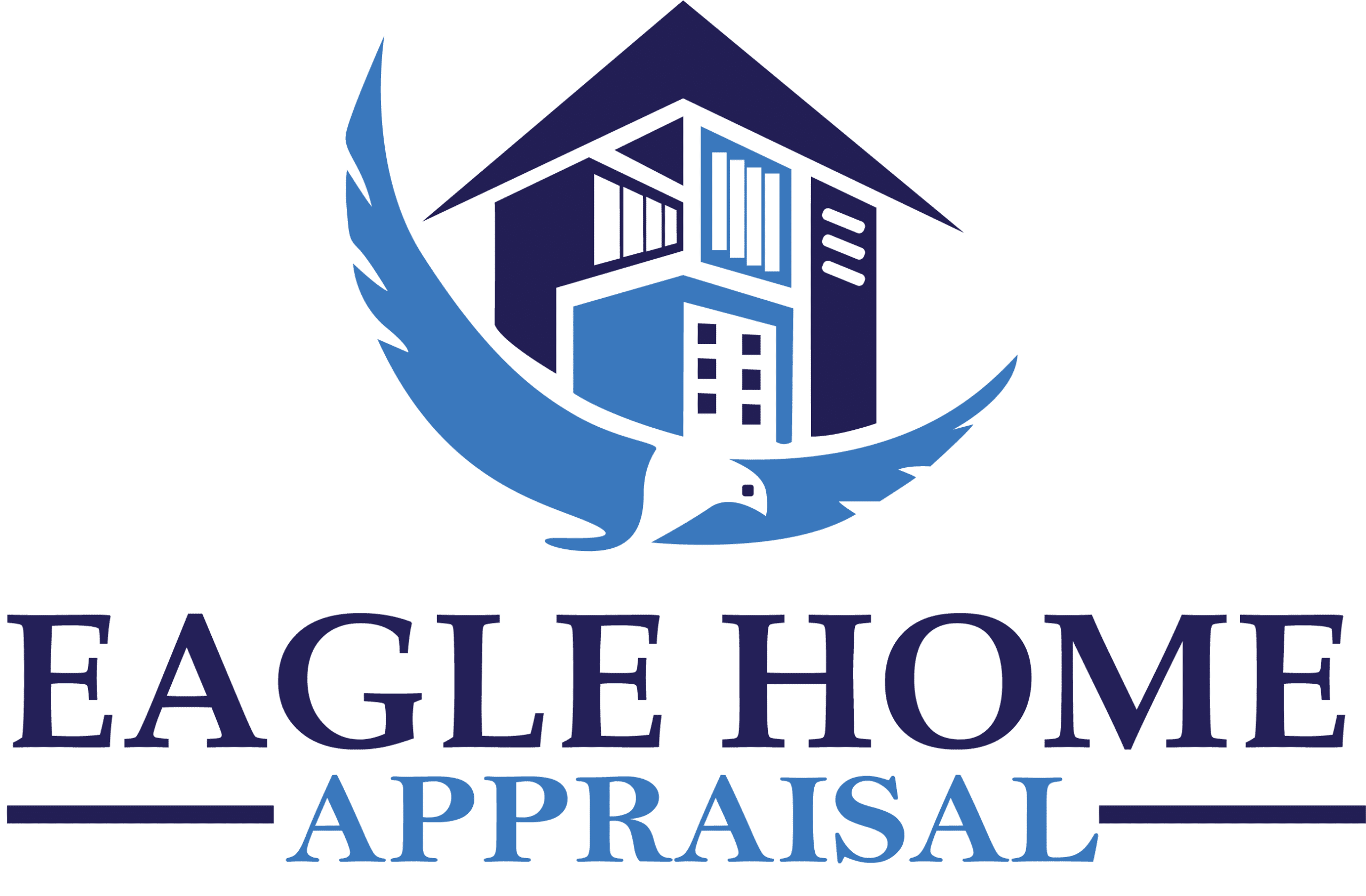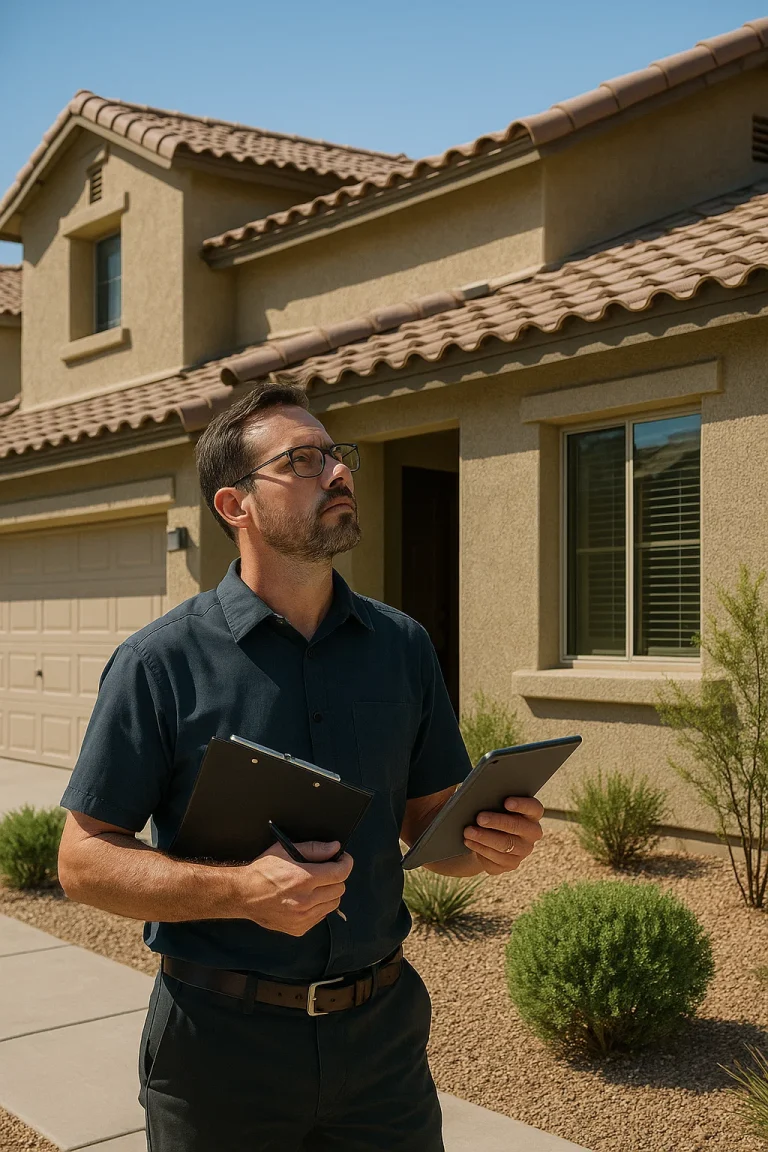Why Might An Appraisal In Gilbert Come In Higher Than The Asking Price
 In the thriving real estate market of Gilbert, Arizona, homebuyers and sellers alike often find themselves facing an unexpected scenario: the home’s appraisal lands higher than the asking price. This phenomenon sparks curiosity and sometimes confusion—after all, isn’t the asking price supposed to represent the true market value? Actually, an appraisal is a professional, data-driven opinion of value based on a comprehensive analysis of the property and the broader market. At Eagle Home Appraisal Gilbert, a top Gilbert real estate appraiser, we see this scenario more frequently than one might expect, and it’s rooted in several local trends and market dynamics unique to our town.
In the thriving real estate market of Gilbert, Arizona, homebuyers and sellers alike often find themselves facing an unexpected scenario: the home’s appraisal lands higher than the asking price. This phenomenon sparks curiosity and sometimes confusion—after all, isn’t the asking price supposed to represent the true market value? Actually, an appraisal is a professional, data-driven opinion of value based on a comprehensive analysis of the property and the broader market. At Eagle Home Appraisal Gilbert, a top Gilbert real estate appraiser, we see this scenario more frequently than one might expect, and it’s rooted in several local trends and market dynamics unique to our town.
When a home’s appraisal comes in above the asking price, it can create tangible benefits and opportunities for all parties involved. For buyers, it can mean instant equity—or more room for negotiation. For sellers, it’s a validation that their property may command even more value than anticipated. For lenders, it signals a lower-risk transaction. But why does it happen? Understanding these factors gives clarity to buyers, sellers, and agents—allowing them to navigate the process with confidence.
This comprehensive guide will explore the top ten reasons why appraisals in Gilbert commonly exceed the asking price, diving into market momentum, seasonal trends, housing inventory, strategic pricing, unique features, upgrades, location, competitive bidding, appraiser expertise, and the power of presentation. Each section reflects local insights and the authoritative perspective Eagle Home Appraisal Gilbert brings to every transaction, empowering you to make smarter decisions in Gilbert’s fast-paced real estate market.
Market Momentum and Recent Sales Data
One of the most influential factors driving higher-than-asking appraisals in Gilbert is the momentum of the local real estate market. In rapidly appreciating markets, recent comparable sales—or “comps”—reflect prices achieved during the previous weeks or months, which are often above current listing prices. This effect is amplified in Gilbert, where steady population growth, job opportunities, and lifestyle amenities contribute to a robust housing demand.
Appraisers rely heavily on these comps to anchor the property’s value. If a seller sets an aggressive or competitive asking price, hoping to attract more buyers or spark a bidding war, the appraisal may still land higher if comps have been trending upward. For instance, consider a period when the median sales price in Gilbert climbs 10% year-over-year due to tight inventory and increased buyer activity. Sellers might price their homes based on prior expectations or online valuations, but closed sales tell a different story—one of escalating values.
The challenge for appraisers is to capture the real-time pulse of the market. They analyze closed transactions, pending deals, and days-on-market statistics to understand buyer psychology and seller behavior. Gilbert’s homes often sell within days, and multiple-offer situations drive prices upward. However, the comps used for appraisal reflect what buyers have already proven they’ll pay, which might be higher than the list price set by the seller.
Additionally, appraisers are required to adjust for time—known as market conditions adjustments. If the market is accelerating, a sale from three months ago may be adjusted upward to reflect current conditions. This technique is particularly relevant in Gilbert’s active neighborhoods, ensuring that rapidly changing values are captured accurately. And when buyers snag a bargain-priced home, the appraisal provides an objective measure grounded in the freshest sales activity, often bolstering the appraised value above what the seller anticipated.
Ultimately, market momentum ensures that appraisals are objective, data-driven, and sometimes one step ahead of seller perceptions—making higher-than-list appraisals a hallmark of a hot real estate market like Gilbert.
Seasonal and Economic Influences
Seasonality and broader economic conditions play a critical role in Gilbert’s real estate valuations. In the spring and early summer, homebuyers rush to secure properties before the school year starts, and sellers take advantage of peak demand. These seasonal swings drive increased competition, more rapid price growth, and ultimately, higher appraisals.
Appraisers account for these patterns by analyzing transaction data from comparable timeframes. For example, homes sold during the popular “spring rush” typically close for more than those listed in the slower fall or winter months. Even if a property is listed conservatively during these peaks to encourage buyer interest, an appraiser measuring against strong seasonal comps may still assign a higher market value.
Economic factors also underpin elevated appraisals. Gilbert’s economy is closely tied to the Phoenix metro area, which has experienced substantial job growth, the expansion of tech industries, and a steady influx of new residents seeking quality schools and a vibrant community. Low interest rates typically seen during economic booms make borrowing more accessible, further boosting buyer activity and supporting higher sale prices.
Population growth is another key element. Gilbert frequently features in national “best places to live” rankings, drawing families and professionals who are willing to compete for a limited supply of homes. This demographic shift means local appraisers must constantly refresh their market analysis, ensuring economic indicators—like migration, employment rates, and income trends—are reflected in their valuations.
Moreover, appraisers examine local government plans, infrastructure investments, and future development projects. If expansion of local amenities, transportation, or business hubs is imminent, appraisers may factor in a premium for anticipated appreciation. In other words, even properties priced for quick sale during slower seasons can receive appraised valuations that are higher—thanks to the strength, timing, and growth potential of Gilbert’s local economy.
Understanding the cyclical nature of Gilbert’s real estate market and the broader economic drivers equips buyers and sellers to anticipate—and benefit from—higher-than-expected appraisals.
Low Housing Inventory and High Buyer Demand
In Gilbert, demand routinely outpaces supply. Low inventory conditions mean fewer homes are available for eager buyers—fueling competition and resulting in faster sales at higher prices. But what’s less visible is how these dynamics influence an appraiser’s calculation, often driving appraised values above asking price.
Inventory levels in Gilbert are tracked by months of supply—a key indicator of market health. When the area experiences less than three months’ supply (considered a “seller’s market”), multiple offers become the norm, and homes often sell above asking. Sellers sometimes price modestly to attract attention, but the shortage means buyers bid up prices. Appraisers, meanwhile, analyze closed transactions to determine how much buyers are truly willing to pay, which can frequently be above the initial list price.
Additionally, appraisers consider absorption rates—the speed at which inventory is sold. Gilbert’s homes in desirable neighborhoods can disappear from the market in days, a stark contrast to slower-moving areas. This velocity signals to appraisers that the market is strong and values are climbing. Appraisers may also note “pending sales” of comparable properties, inferring that if multiple homes go under contract at elevated prices, the appraised value should reflect this pressure.
Buyer profiles also matter. With many relocations from out-of-state (especially from more expensive markets in California), buyers bring additional purchasing power and sometimes overlook modest pricing to secure their place in Gilbert’s sought-after lifestyle. Appraisers review demographic trends and migration patterns to support upward adjustments when appropriate.
The net result is that low inventory and high demand can create a gap between seller expectations and true market value—one that expert appraisers recognize and quantify. If you’re a buyer, a higher appraisal provides instant equity; if you’re a seller, it’s evidence your home may be worth more than you thought. For all, it’s another sign of Gilbert’s brisk real estate scene.
Strategic Underpricing by Sellers
Real estate agents and sellers in Gilbert often employ strategic pricing methods to maximize interest and drive competitive bidding. By listing a home below its perceived market value, they hope to attract multiple offers—sometimes leading to a final sale price above the ask. This tactic, while effective in stimulating buyer urgency, doesn’t always align with the property’s appraised value, which can easily come in higher than the original list price.
Appraisers must separate savvy marketing tactics from objective valuations. They focus on closed sales data, attribute comparisons, and overall market trends—not just the price on the listing sheet. If the seller’s strategy works and bidding drives the price higher, the appraiser ensures their valuation reflects what similar homes are selling for, considering the property’s features, condition, and location.
Unique Home Features That Outshine Local Comps
Gilbert offers a mix of home styles and amenities, with many properties boasting features that set them apart from typical comparables. RV garages, chef’s kitchens, energy-efficient upgrades, resort-style backyards, and high-tech smart home systems are just a few examples. When a home includes amenities or upgrades not commonly found in nearby comps, an appraiser will make adjustments that can raise the valuation above the asking price.
Appraisers carefully catalog and quantify these features. For instance, an outdoor living space with a custom pool, covered patio, and professional landscaping may command a premium—particularly if local buyers value these amenities for Arizona’s warm climate. Similarly, a casita or guest suite offers versatile space for multi-generational living, which is increasingly in demand.
In situations where the subject property’s features are significantly better than those in recently sold homes, appraisers use paired sales analysis or apply value adjustments. They consult builder upgrade logs, local construction costs, and buyer preference surveys, ensuring the enhancements are fairly represented in the appraisal.
It’s also common for sellers to underestimate the value of “hidden” upgrades, like whole-house water filtration, solar panels, or advanced security systems. While these may not be top-of-mind during pricing, appraisers note market trends that show buyers pay extra for energy efficiency, security, and smart technology. These features, though initially overlooked in setting the list price, push the appraisal higher due to their positive impact on desirability and marketability.
Neighborhood amenities matter, too. Proximity to golf courses, private lakes, green belts, and community recreation centers can result in additional appraisal premiums—not always fully reflected in the asking price.
Ultimately, unique features can drive the appraised value well above the list price—especially in Gilbert, where lifestyle preferences and modern amenities command strong buyer attention.
Recent Upgrades, Repairs, and Renovations
The quality and extent of recent upgrades can have a dramatic effect on a home’s appraised value in Gilbert. Whether it’s a new roof, remodeled kitchen, upgraded bathrooms, or luxury flooring installation, these improvements often translate into higher valuations—sometimes exceeding the seller’s list price, especially if comps have not caught up with the quality or scale of the upgrades.
Appraisers review receipts, permits, and contractor documentation to account for substantial investments. For example, the cost of a roof replacement in Gilbert may be $10,000–$15,000, but its impact on the market value can be significantly higher, given its influence on buyer confidence and long-term home durability.
Kitchen and bathroom renovations are among the most impactful. According to national and local ROI studies, these upgrades frequently return 70%–80% or more on investment and raise a home’s selling price, particularly in a market where buyers are ready to move in without hassle.
High-quality improvements like energy-efficient windows, upgraded HVAC systems, and smart home features further increase desirability. In Gilbert, where summer temperatures soar, buyers appreciate homes with shaded patios, efficient cooling systems, and energy-saving enhancements—prompting appraisers to assign premium value.
The timing of improvements matters, too. Homes listed soon after major renovations often stand out against comps, which may feature older finishes or require repair. Appraisers use adjustment formulas and consider depreciation schedules to reflect the added value of recent upgrades, ensuring the appraisal does not undervalue a well-maintained, move-in-ready property.
For sellers and agents, documenting renovations—through receipts, before-and-after photos, and permit records—can substantiate value for the appraiser, pushing the appraisal higher than the asking price if comps don’t match the level of investment.
Appraisers in Gilbert are trained to recognize quality, craftsmanship, and buyer expectations—making significant upgrades a key factor in above-list valuations.
Favorable Location, Schools, and Amenities
Location is paramount in real estate, and Gilbert’s neighborhoods offer a diverse selection of advantages that can directly impact appraisal values. Properties zoned to highly rated schools, near parks, shopping centers, or with easy commutes to employment hubs consistently command higher values—sometimes above asking prices not adequately reflecting these premiums.
For families, school quality is a top consideration. Gilbert’s district schools—like Gilbert Classical Academy, Perry High, and Campo Verde—regularly receive top rankings, driving demand and boosting values for homes within their boundaries. Appraisers analyze school ratings, district reputation, and data on home prices near coveted institutions to apply upward adjustments.
Neighborhood desirability adds another layer. Communities such as Val Vista Lakes, Power Ranch, and Agritopia offer amenities like walking trails, lakes, pools, and community centers, which elevate quality of life and market demand. Appraisers compare amenities, neighborhood design, and resale performance when determining value differences among similarly built homes.
Walkability and convenience for shopping, dining, and entertainment matter, too. Homes close to Gilbert’s historic downtown or popular retail corridors attract buyers seeking vibrant, accessible lifestyles, and appraisers reflect these location-based premiums in their analysis.
Upcoming or planned developments—such as new roads, commercial centers, or parks—may also prompt appraisers to factor in future appreciation potential. The anticipated growth can boost present value, particularly if sellers have not yet recognized these trends in their pricing.
Safety and community ratings further solidify value. If crime rates are low or the area is featured in “best places to live” publications, buyers are often willing to pay more. Appraisers are equipped with local data to support these location-based adjustments.
Ultimately, location, schools, and amenities contribute critical premiums that often outpace initial seller pricing—making appraised values higher than the ask, especially in Gilbert’s competitive neighborhoods.
Competitive Bidding and Multiple Offers
Multiple-offer situations are commonplace in Gilbert, especially in high-demand neighborhoods and during peak buying seasons. While the listing price sets a baseline for negotiations, actual sales often surpass this figure as buyers compete. Appraisers, tasked with remaining neutral, analyze these conditions to ensure valuations reflect genuine market activity.
Appraisers look beyond listing price and focus on closed sales data of homes that received multiple offers and ultimately closed above the ask. They pay attention to sale-to-list ratios—a metric that reveals whether homes are consistently selling for more than their list prices. In Gilbert, recent years have recorded sale-to-list ratios above 100%, indicating a prevailing trend of bidding wars and successful offers above asking.
To ensure objectivity, appraisers compare the subject property to nearby homes that experienced similar competitive dynamics. If the subject home attracts multiple offers and is under contract at a price above the list, appraisers evaluate whether this outcome aligns with broader market trends. They view escalation clauses, buyer willingness to waive contingencies, and cash offers as signals of buyer urgency—a factor that supports higher valuations.
Examples abound in Gilbert’s recent sales history. Single-family homes priced at $550,000, yet closing at $580,000 after five offers, reflect the true market value driven by buyer competition. Appraisers document these situations, ensuring that their valuations match what buyers are currently paying in the immediate vicinity. If comps with recent bidding wars have set new price benchmarks, the appraiser will use these as the basis for the subject property’s market value—even when the seller originally listed lower to drive interest.
By factoring competitive bidding and sale-to-list metrics, appraisers provide sellers, buyers, and lenders with a realistic, market-driven value—often higher than the original ask in a fast-moving market like Gilbert.
Documentation, Staging, and Presentation
How a home is prepared for the appraisal can make a meaningful difference in the final valuation. Cleanliness, staging, curb appeal, and thorough documentation provide appraisers with the best possible impression and information needed to determine the true value—sometimes pushing the appraised price above the list.
Staging is particularly effective in Gilbert, where buyers expect move-in-ready properties. A well-staged home showcases its best features, creates memorable first impressions, and increases perceived value. Appraisers, in turn, report that homes presented with care, decluttered spaces, and appealing aesthetics often receive higher marketability scores, justifying premium appraised values.
Documentation is just as important. Sellers who gather recent receipts, contractor invoices, warranty information, and before-and-after photos make it easy for appraisers to confirm upgrades and improvements. Having this paperwork available not only streamlines the process but also ensures that no valuable features are overlooked. For major upgrades, providing city permits and inspection records reflects quality and compliance—further supporting upward adjustments.
Curb appeal is another subtle factor. In Gilbert’s neighborhoods, tidy landscaping, fresh exterior paint, and clear walkways give the appraiser confidence in the home’s maintenance. Even minor repairs and touch-ups, like fixing leaky faucets or replacing worn carpet, can have outsized effects on perceived value.
Preparing for the appraisal should include a quick walk-through to correct any maintenance issues, organizing documentation, and highlighting special amenities or upgrades. Sometimes, sellers consult with a local appraiser beforehand to identify high-impact changes, ensuring every dollar invested translates into higher valuation.
Ultimately, homes that are staged, upgraded, and thoroughly documented demonstrate pride of ownership—giving appraisers ample justification for a higher valuation, occasionally surpassing the original ask.
Conclusion
A Gilbert home appraisal coming in above the asking price is not just possible—it’s increasingly common in our vibrant, growing community. Driven by market momentum, economic trends, low inventory, strategic pricing, unique features, upgrades, location, competitive bidding, expert judgment, and thoughtful presentation, these higher valuations benefit buyers, sellers, and lenders alike.
For buyers, it’s instant equity and added security. For sellers, it’s proof that their home may command more in today’s market. For agents and lenders, it’s a reliable data point supporting successful transactions. At Eagle Home Appraisal Gilbert, our certified professionals combine deep local knowledge, rigorous methodology, and a commitment to objectivity—ensuring every appraisal accurately reflects the market reality.
Are you looking to understand your home’s true value, maximize your sale, or secure the best deal in Gilbert? Contact Eagle Home Appraisal Gilbert today for expert guidance, precision, and market insight tailored to your goals.
Next Up: In our next post, we’ll tackle the question, “Do Appraisals in Gilbert Account for Solar Panels and Energy Upgrades?” and discuss how these features can impact your home’s value and appraisal results.
Divorce Appraisals
At Eagle Home Appraisal Gilbert, we specialize in providing expert divorce appraiser services, offering expert witness testimony when necessary.
Estate & Trust Appraisals
At Eagle Home Appraisal Gilbert, we offer a comprehensive range of professional estate appraisal services to facilitate estate and trust planning.
IRS & Tax Appraisals
At Eagle Home Appraisal Gilbert, we specialize in providing professional IRS tax appraisal services to minimize capital gains on inherited property.
Real Estate Appraisal
Eagle Home Appraisal is a group of independent fee appraisers committed to delivering competent, credible, and reliable appraisal reports.
Eagle Home Appraisal Services Near Me
Comprehensive Property Appraisals
Expert Witness Testimony
Fair Market Value Assessments
Rapid Turnaround Times
Customized Solutions
Contact Eagle Home Appraisal Today
For more information about our services, get in touch with Eagle Home Appraisal. Our team is dedicated to providing the best customer service, ensuring all your appraisal needs are met with professionalism and expertise. Contact us today to learn more about how we can assist you.
Get A Free Consultation

copyright @2025 all rights reserved | Privacy-policy



